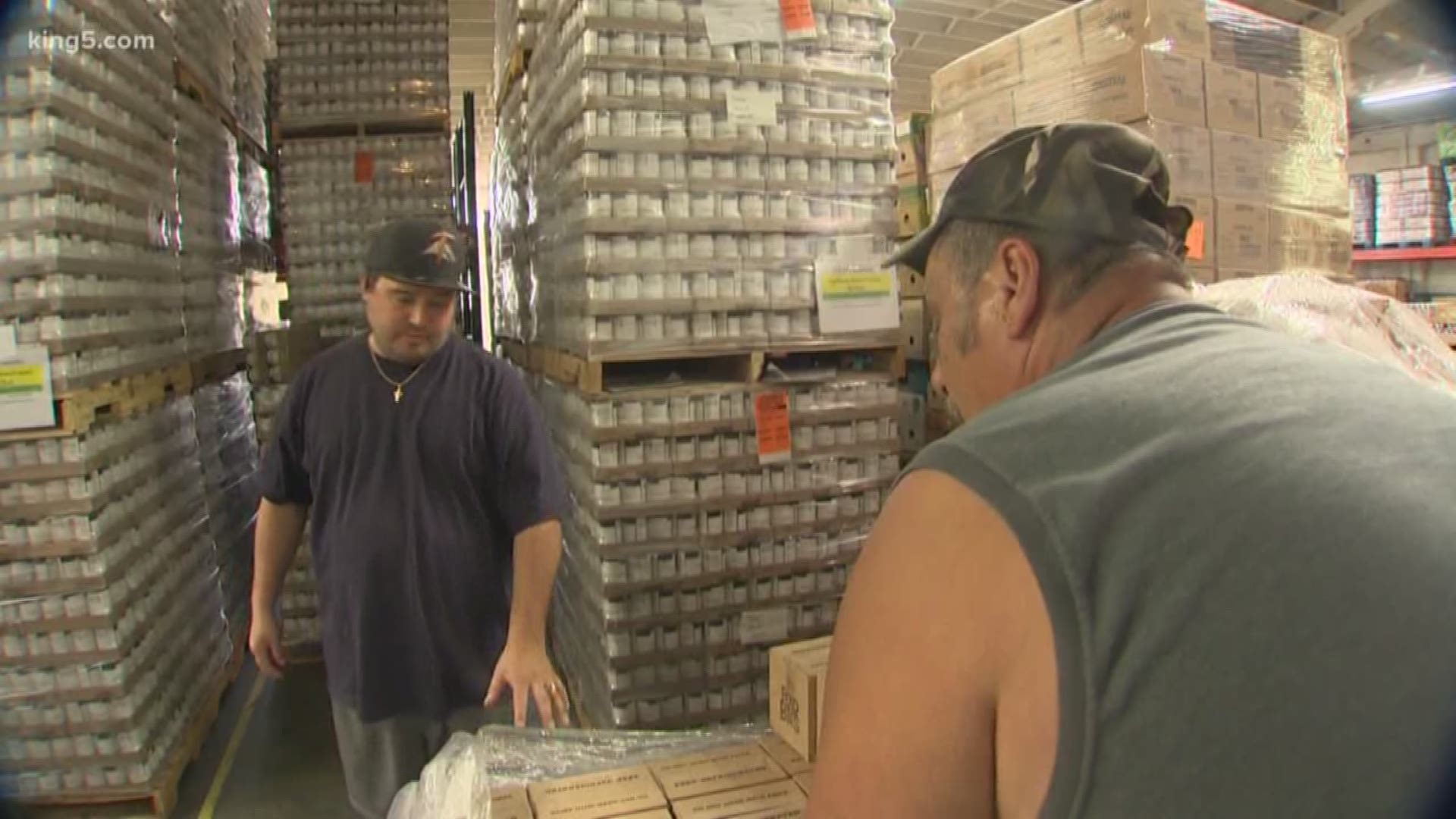LAKEWOOD, Washington — Tariffs placed on China by President Donald Trump have forced many farmers to sell their food to the federal government. Much of that food ends up at food banks.
While that seems like a positive all of that food can have unintended consequences.
Emergency Food Network (EFN) distributes food for 76 Pierce County food banks. They're also the county's only distributor for federal food, which has doubled what it was given last year.
"It's an astronomical change," EFN CEO Michelle Douglas said. "For us, while we are deeply grateful, it's been a logistical change."
President Trump's trade war with China had an unexpected consequence. A lot of the food that's no longer going to China is now headed to food banks as part of the USDA's Emergency Food Assistance Program.
"We have a lot of people who need the food. It's just unprecedented how we're receiving it right now," Douglas said.
In August 2018, the first Trade Mitigation Package was established to help off-set the impact of the trade tariffs to farmers. It provided a little over $12 billion in different types of support.
There has been an influx in higher quality foods as well as fruits and vegetables. For the first time milk is part of the program, coming from locally owned Darigold, the Washington Department of Agriculture reports.
"The response from our hunger-relief agencies and the people they serve has been overwhelmingly positive but there have been some challenges in distributing a dramatic increase in fresh and frozen foods," said WSDA Food Assistance Program Manager Kim Eads.
"Some food pantries really don’t have the ability to store large quantities and struggle with capacity issues, but many have been able to expand their hours of operation to move the perishable food quickly or invest in more freezers and refrigerators."
EFN has had to hire more staff, schedule more deliveries, even create extra freezer and storage space.
The toughest challenge is perishable food with a short shelf life.
"When we look at federal eggs and federal apples, it means they have to come every week, they need to pick up, they need to get the food in and they need to get the food out," Douglas said. "We have a lot of people who need the food, it's just unprecedented how we're receiving it right now."
While EFN expects it to continue through spring of next year, Douglas says they still need donations as federal food only goes to part of their network.
"We just want to say, we're super grateful for it. It's great to have this much food. It's beautiful food. There's a great variety of it and that's fantastic. But it's not longterm," Douglas said. "It isn't that EFN doesn't still desperately need donations and food products. We need that to keep the whole system working. This is a part of the system, not the whole."
Another Trade Mitigation Package is scheduled for next year, and for Washington hunger relief agencies that will mean $20 million in food.

